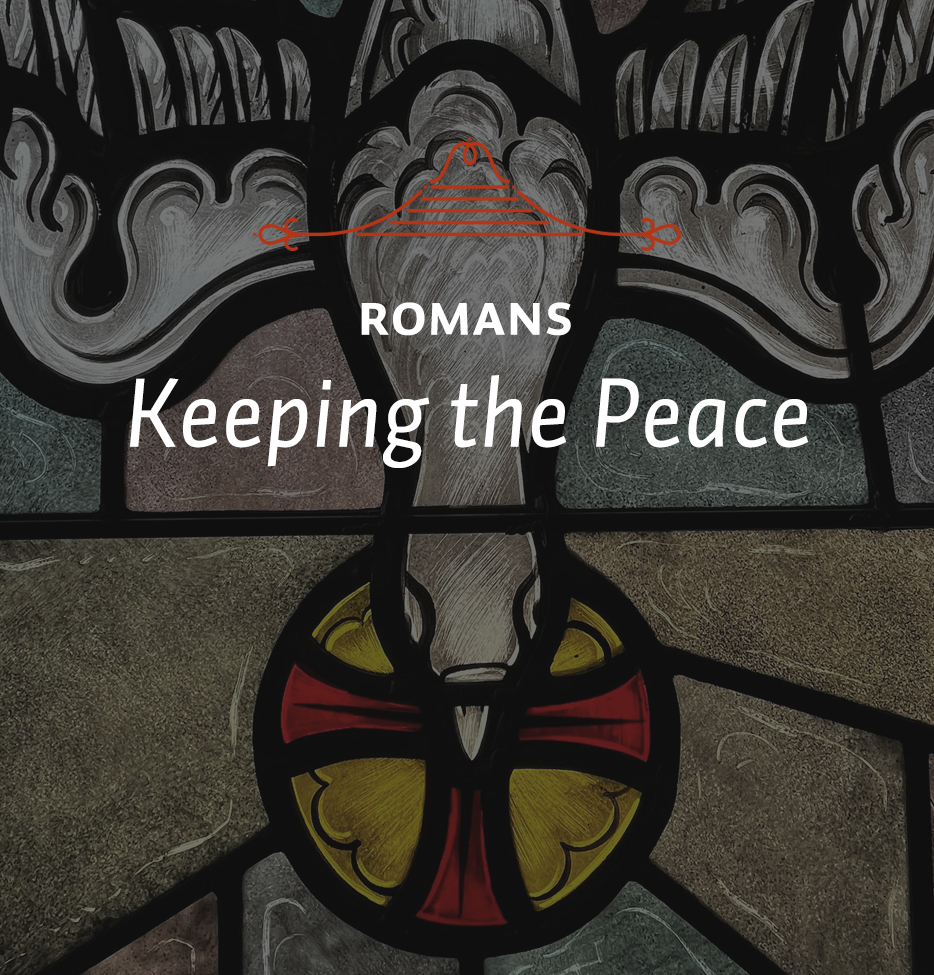This week I have been working through what Paul is teaching about peacekeeping or peacemaking, and I have stressed that it requires realism, forbearance and active goodness to those who do wrong. But perhaps you have been thinking—I know the thought comes to me—“But I can’t do it. I don’t care if this is the Christian way or is the example of Christ, I can’t do it. Nothing is ever going to get me to the point of wanting to do good to those who hate me.”
Fair enough. You have to start where you are, and if that is where you are, you have to recognize it. But also recognize that those who belong to Jesus Christ do not have a choice about whether they are going to follow and obey Him or not. We must, if we are Christians. Therefore, we must be peacekeepers and peacemakers. We must be like Him.
So the question is not, “Will you?” The question is merely, “How?” Let me make three suggestions.
First, you will never make any progress in making peace between yourself and other people until you have first found peace with God. That means you must be a Christian. Our relationship to God is the most important of all relationships, and if we are not at peace with Him, we will never be at peace with others. We will be fighting constantly. On the cross Jesus made peace between rebellious sinners like us and the sovereign, holy God against whom we have rebelled. Jesus made peace between God and sinners, and it is by believing that and trusting in Jesus’ finished work that peace with God may be found.
Paul told the Colossians, “God was pleased to have all his fullness dwell in him [that is, Christ], and through him to reconcile to himself all things, whether things on earth or things in heaven, by making peace through his blood, shed on the cross” (Col. 1:19-20).
Second, if you are to be a peacemaker, you must be at peace yourself, and this means you must have experienced what Paul in Philippians calls the peace of God. “Let your gentleness be evident to all. The Lord is near. Do not be anxious about anything, but in everything, by prayer and petition, with thanksgiving, present your requests to God. And the peace of God, which transcends all understanding, will guard your hearts and your minds in Christ Jesus” (Phil. 4:5-7).
First, peace with God. Second, the peace of God. Then, at the last, you will be able to start being a peacekeeper and peacemaker. For when you are at peace with God and when the life of the Prince of Peace is in you, Jesus will be doing through you what He Himself was doing when He was in the world. And while you are at it, do not forget the seventh of the eight Beatitudes, which promises a blessing to peacemakers, adding, “for they will be called sons of God” (Matt. 5:9).






